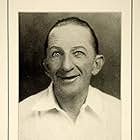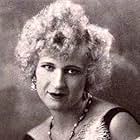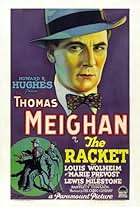IMDb RATING
7.5/10
3.6K
YOUR RATING
Boisterous gangster kingpin Bull Weed rehabilitates his former lawyer from his alcoholic haze, but complications arise when he falls for Weed's girlfriend.Boisterous gangster kingpin Bull Weed rehabilitates his former lawyer from his alcoholic haze, but complications arise when he falls for Weed's girlfriend.Boisterous gangster kingpin Bull Weed rehabilitates his former lawyer from his alcoholic haze, but complications arise when he falls for Weed's girlfriend.
- Won 1 Oscar
- 5 wins total
Alfred Allen
- Judge
- (uncredited)
Shep Houghton
- Street Kid
- (uncredited)
Andy MacLennan
- One of Laughing Faces at the Ball
- (uncredited)
Ida May
- Laughing Woman at the Ball
- (uncredited)
Karl Morse
- 'High Collar' Sam
- (uncredited)
Bob Reeves
- Detective at Railroad Station
- (uncredited)
Julian Rivero
- One of Buck's Henchmen
- (uncredited)
Storyline
Did you know
- TriviaThe film was predicted to be a flop, was shelved by Paramount and eventually released in only one theater in New York. Screenwriter Ben Hecht demanded that his name was taken off the credits. As a result of strong word-of-mouth the movie became an enormous hit and won Hecht the first of his two Academy Awards.
- Quotes
'Bull' Weed: -There was something I had to find out - - and that hour was worth more to me than my whole life.
- ConnectionsFeatured in The House That Shadows Built (1931)
Featured review
I am not a big fan of the gangster film; when I am in the vicinity of the crime drama I always gravitate towards noir, where the moral lesson reserved for our protagonist in crime is not simply a present awareness that this life was only paid back with suffering but a deeper glimpse of the entire karmic process that produces a life of suffering.
In a gangster film this lesson is expressed in one of two ways; the protagonist is either left a broken, doomed being whose tragic fate is envied by no one, or is purged in the fire and brimstone of a final violence. So although we have watched secretly fascinated at the social fabric in ruins, it is important, in both respects, that we leave the theater restored in ethical order. We thus assume the role of the despised public enemy; his fate is ours for having indulged the antisocial fantasy. The final taste is always gingerly bitter, and works when it does because we invested so much of ourselves in the wrong side of the fence.
So you may hear of this as a milestone in the evolution of this type of film, and it's all because of the finale. It is this cathartic vision of some urban mid-station on the road to limbo where, amid a pall of gunsmoke and broken shards of brick wall, our protagonist comes to realize folly and is purged from life almost as a hero.
It is important to note that he doesn't go out all guns blazing, but rather surrenders to the cops. He will face death, but will not be even momentarily martyred on screen; what is heroic about him, so properly old fashioned, is that he honorably extricates from his bloody fate the innocent.
You can't miss any of this if you're a fan of the gangster genre. Scarface - the original - was built on this.
There are a few other instances that exert some cinematic intrigue; the fast-cutting of faces, superimpositions, shadows across walls. But it does not match the more interesting experiments going on in silent cinema of the time, or what this man would be doing the following year.
What is so apt about all of this is the smoky, drowsily anxious mood, the sense of excited weariness at the prospect of danger. There is a brawl in what only 30 years before would have been called a saloon. It's called the 'Dreamland Cafe', and just outside a neon sign reading 'The City is Yours' flashes the grinning mobster and his moll.
In a gangster film this lesson is expressed in one of two ways; the protagonist is either left a broken, doomed being whose tragic fate is envied by no one, or is purged in the fire and brimstone of a final violence. So although we have watched secretly fascinated at the social fabric in ruins, it is important, in both respects, that we leave the theater restored in ethical order. We thus assume the role of the despised public enemy; his fate is ours for having indulged the antisocial fantasy. The final taste is always gingerly bitter, and works when it does because we invested so much of ourselves in the wrong side of the fence.
So you may hear of this as a milestone in the evolution of this type of film, and it's all because of the finale. It is this cathartic vision of some urban mid-station on the road to limbo where, amid a pall of gunsmoke and broken shards of brick wall, our protagonist comes to realize folly and is purged from life almost as a hero.
It is important to note that he doesn't go out all guns blazing, but rather surrenders to the cops. He will face death, but will not be even momentarily martyred on screen; what is heroic about him, so properly old fashioned, is that he honorably extricates from his bloody fate the innocent.
You can't miss any of this if you're a fan of the gangster genre. Scarface - the original - was built on this.
There are a few other instances that exert some cinematic intrigue; the fast-cutting of faces, superimpositions, shadows across walls. But it does not match the more interesting experiments going on in silent cinema of the time, or what this man would be doing the following year.
What is so apt about all of this is the smoky, drowsily anxious mood, the sense of excited weariness at the prospect of danger. There is a brawl in what only 30 years before would have been called a saloon. It's called the 'Dreamland Cafe', and just outside a neon sign reading 'The City is Yours' flashes the grinning mobster and his moll.
- chaos-rampant
- Sep 16, 2011
- Permalink
- How long is Underworld?Powered by Alexa
Details
Box office
- Gross US & Canada
- $1,642,194
- Runtime1 hour 20 minutes
- Sound mix
- Aspect ratio
- 1.33 : 1
Contribute to this page
Suggest an edit or add missing content































